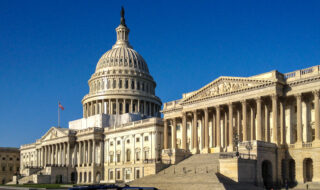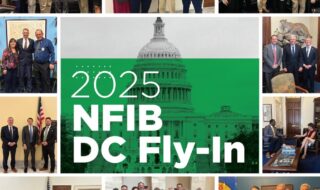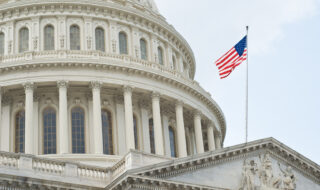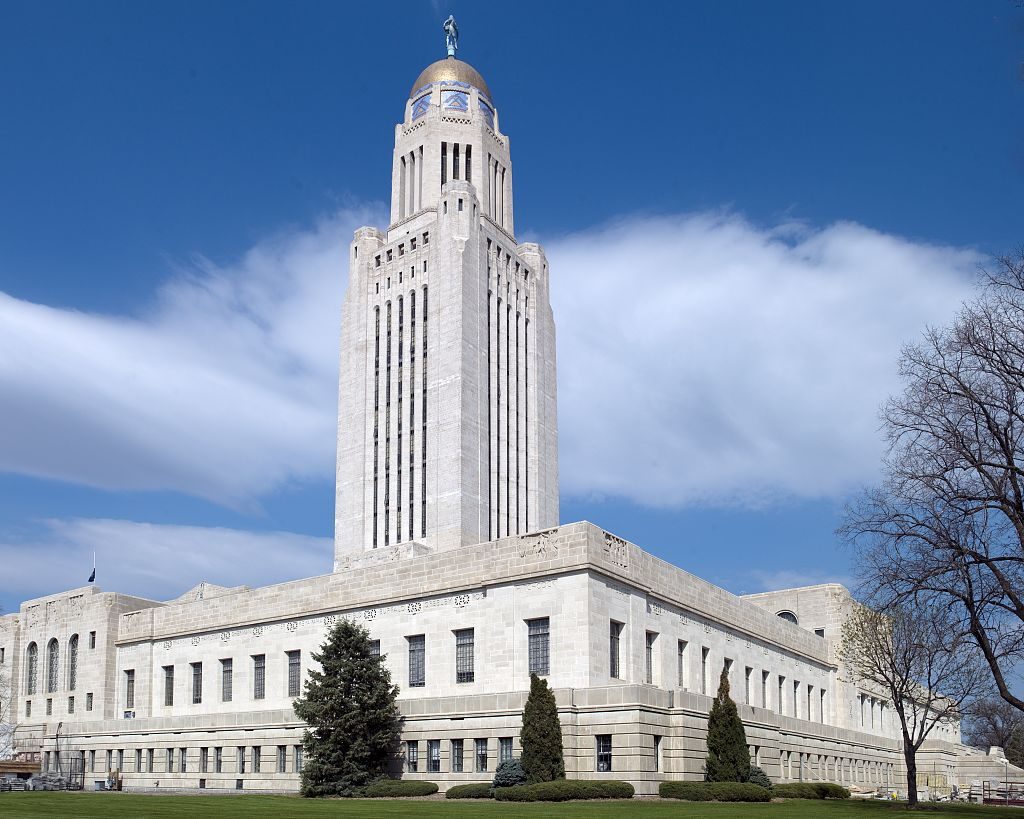May 21, 2021
Liability Protection Against Unfair COVID Lawsuits Passes
State Director Bob Hallstrom reports from Lincoln on the small-business agenda for the legislative and political week ending May 21
The last full week of the 2021 Legislative Session featured extended debate on bills designed to provide protections for meatpacking workers (Legislative Bill 241); funding for children with developmental disabilities (Legislative Bill 376); and distribution of education lottery dollars (Legislative Bill 529), with each of these measures failing to advance. The Legislature effectively completed its substantive work on Friday and will reconvene next Thursday, if necessary, to consider overrides of any gubernatorial vetoes.
Business Liability Protections Adopted
COVID-19 business liability protection legislation (Legislative Bill 139) was given final approval by the Legislature on Thursday. Introduced by Sen. Tom Briese (Albion), LB 139 would provide a “safe harbor” from potential lawsuits alleging that a protected individual or organization negligently exposed an individual to COVID-19 infection.
Under the bill, civil lawsuits would be prohibited as long as the protected individual or organization was acting in compliance with “federal public health guidance” (written or oral guidance related to COVID-19 issued by the Centers for Disease Control; the Centers for Medicare and Medicaid services; or the Federal Occupational Safety and Health Administration). The bill does not affect the rights or limits under the Nebraska Workers’ Compensation Act.
The “safe harbor” protections in the bill as originally introduced were narrowed by an amendment adopted on General File which removed provisions that would have prevented civil lawsuits unless an individual (a) was diagnosed with a case of COVID-19 requiring in-patient hospitalization or resulting in death; and (b) could prove, by clear and convincing evidence, that the condition occurred through gross negligence or willful misconduct.
NFIB-Supported Bills Cross the Finish Line
The following bills, all supported by NFIB, were given final approval by the Legislature during the past week:
- Legislative Bill 64 – Taxation of Social Security Benefits: Introduced by Sen. Brett Lindstrom (Omaha), and designated as a priority bill by Sen. Mark Kolterman (Seward), LB 64 will provide, for tax years beginning on or after January 1, 2021, for a phase-in reduction of income taxation of Social Security benefits by 5%, increasing to 20% in 2022 and increasing by 10% each year thereafter until federal adjusted gross income is reduced by 50% of the benefits for tax years beginning on or after January 1, 2025. The bill was further amended to express legislative intent to continue incremental reduction of the tax on Social Security benefits to within the next five years to increase the percentage of Social Security benefits excluded by 10% each year until 100% of the benefits are excluded for tax years beginning on or after January 1, 2030. Reductions beyond 50% of the benefits to carry out the “legislative intent” will require affirmative legislative action in the future.
- Legislative Bill 388 – Nebraska Broadband Bridge Act: Introduced by Sen. Curt Friesen (Henderson) and designated as a priority bill by Speaker Mike Hilgers (Lincoln), LB 388 will appropriate $20 million annually, beginning with fiscal year 2021-22 to facilitate and fund the development of broadband networks in unserved and underserved areas. The bill will create grants to be used for development costs for a qualifying project and require matching funds from political subdivisions making application for a grant, equal to 50% of the total development costs.
- Legislative Bill 432 – Corporate Income Tax Parity: LB 432, as originally introduced, would have created parity between the highest marginal individual income tax rate of 6.84 percent and the top marginal corporate income tax rate by reducing the tax rate on corporate income in excess of $100,000 from 7.81% to 6.84% beginning January 1, 2022. During Select File debate, LB 432 was amended to phase in a smaller income tax rate cut for the next two years.
LB 432 will cut the state’s top corporate income tax rate to 7.5% for tax years beginning on or after January 1, 2022, with the rate falling to 7.25% for tax years beginning on or after January 1, 2023. The amendment states the intent of the Legislature to further reduce the rate to 7% for tax years beginning on or after January 1, 2024 and to 6.84% for all tax years thereafter. Subsequent reductions to carry out the “legislative intent” will require affirmative legislative action.
- Legislative Bill 644 – Property Tax Request Act: Under LB 644, introduced and designated as a priority bill by Sen. Ben Hansen (Blair), certain political subdivisions (counties, cities, school districts and community colleges) will be required to hold a joint public hearing prior to increasing the property tax requests. The political subdivisions will be required to provide notice of the hearing to taxpayers by postcard, the hearing would be open to public testimony, and the agenda would include only the property tax request proposals. The joint public hearing will only be required to be conducted if the political subdivisions are seeking to increase the property tax request by more than an “allowable growth percentage,” equal to 2% plus the political subdivision’s real growth percentage.
Workers’ Compensation Bill Given Final Approval
- Legislative Bill 256 – Workers’ Compensation – Approval of Lump-Sum Settlement: LB 256, introduced by Sen. Matt Hansen (Lincoln), will clarify that a release of a lump-sum settlement for indemnity benefits only, that is not required to be submitted for approval by the Compensation Court, need not contain allegations regarding eligibility for Medicare if the employee’s right to receive future medical, surgical, and hospital services is specifically excluded from the settlement and Medicare has not paid medical, surgical, or hospital expenses or if Medicare has paid medical, surgical, or hospital expenses for which it claims it is entitled to reimbursement and Medicare has been reimbursed for such expenses at the time the settlement is executed.
Previous Reports and Related Information
- April 2—Tax Reform/Relief Bills Advance
- February 26—A $20-an-hour Minimum Wage?
- February 12—NFIB Members Weigh in on Paid Leave Bill
- January 15—The Legislative Bill Mill Starts Turning
NFIB is a member-driven organization advocating on behalf of small and independent businesses nationwide.
Related Articles















